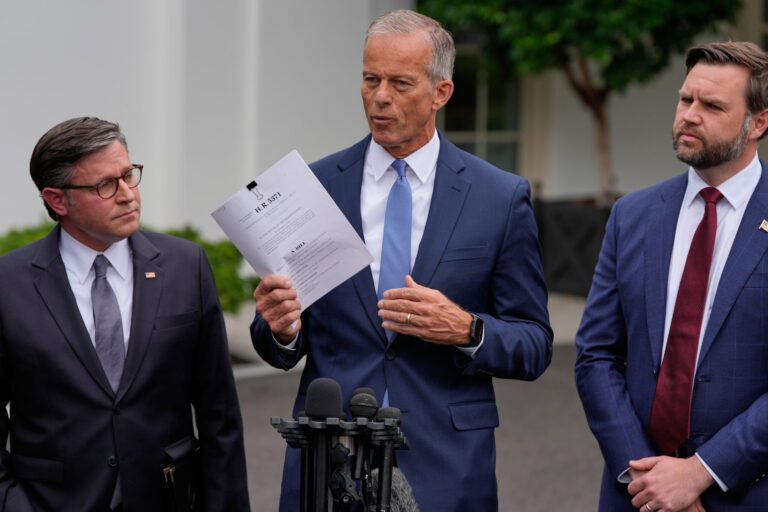Government Shutdown Looms as Senate Faces Repeated Votes on Funding Bill
As the deadline to avert a government shutdown approaches, Senate Majority Leader Senator John Thune has indicated that lawmakers might find themselves in a "Groundhog Day" scenario, with repeated votes on the Republicans’ short-term funding bill. The clock is ticking: the government is set to shut down at midnight on Wednesday.
Senate Republicans Stand Firm with President Trump
In discussions reported by The New York Sun, Thune confirmed that he and other congressional Republicans are standing resolutely with President Trump. The President has urged the Senate to prioritize passing a temporary funding bill until November 21, rather than engaging in negotiations over expiring health care subsidies. The House had previously passed this stopgap bill on September 19.
Democrats’ Strategy: Health Care Subsidies for Government Funding
Senate Democrats are attempting to leverage their support for keeping the government operational by proposing an extension of Biden-era insurance subsidies, which are due to expire at the year’s end. This marks a shift from earlier months when Democrats received backlash from their base for voting to fund the government until September 30.
Quote from Senator Thune:
"There are ways to trigger those votes… at some point, they’re just going to need to keep voting it down. The only thing right now standing between our country and a shutdown is Senate Democrats."
Thune emphasized his commitment to procedural mechanisms that would facilitate back-to-back votes on the funding bill.
Bipartisan Meeting: Challenges in Negotiation
On Tuesday, Thune, alongside Speaker Johnson and President Trump, met with Senate Democrats at the White House in an attempt to find common ground. Following the meeting, Senate Minority Leader Chuck Schumer revealed that he believed Trump was unaware of the immediate ramifications of the expiring health insurance subsidies, which will take effect on October 1.
"He was not aware that the real effect of that starts October 1st, not December 31st," Schumer remarked, aiming to highlight the urgency of the situation.
Vice President Vance’s Call for Cooperation
Despite the challenging negotiations, Vice President Vance encouraged a collaborative approach to American health care policy. Vance stated:
"Let’s work on it together, but let’s do it in the context of an open government that’s providing essential services to the American people."
He stressed that reaching a shutdown is imminent if Democrats fail to make compromises.
Potential Consequences of a Government Shutdown
The ramifications of a government shutdown could be severe, as emphasized by Thune and Vance:
- Impact on Federal Services: Essential services could be disrupted, affecting millions of Americans.
- Financial Strain: Millions may face increased premiums if health insurance subsidies lapse.
Quote from Schumer:
"It’s in the president’s hands. He has to convince the Republican leaders."
What Happens Next?
If any amendments are made to the House-passed funding bill currently pending in the Senate, it would need to go back to the House for approval. However, Speaker Mike Johnson has indicated he does not expect House members back in session until October 7. This means urgent action would be required—either recalling lawmakers for a last-minute vote on Tuesday or waiting until next week, which would guarantee at least one day of government shutdown.
In this high-stakes environment, all eyes remain on Senate Democrats and their ability to negotiate effectively, as the countdown to midnight approaches.
For more updates on government funding and related news, visit CNN Politics and Reuters Politics.


